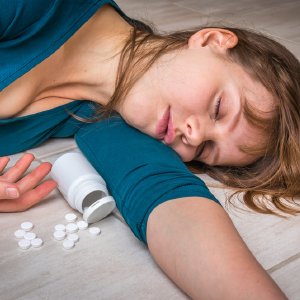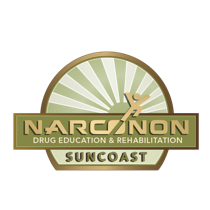The Kratom Craze

The illegalization of Kratom is all the rage in the news these days. Thought to be a viable solution to opiate addiction, Kratom has gained massive popularity as a legal way to get high and is sold in head shops and gas stations around the country. Also, Kratom has increased the popularity of “non-alcoholic” or “botanical” bars, where people can consume Kratom tea and, of course, it’s totally legal. What people fail to consider are the negative effects Kratom can have, especially on those already with substance abuse issues.
Kratom, Mitragyna speciosa, is a plant that grows in southeastern Asia and is in the same family as coffee and gardenias. Kratom has been used in the region for its energizing and also pain killing effects, which are dose-dependent. A small dose of Kratom has energizing effects while higher doses have opiate and depressant-like effects. Little scientific research has been done on Kratom, but scientists have isolated more than 20 biologically active compounds in the plant, including several that bind to opiate receptors.
But just because it’s considered “safe” and “all-natural” doesn’t mean it’s good for you. American’s have a habit of thinking that if something isn’t illegal and it’s sold in stores, then it can’t be “that bad.” That’s the current scene when it comes to Kratom. Not enough research has been done to determine whether it’s safe and that it doesn’t pose a public health hazard. I used to always make a joke that some people will try to live a healthy lifestyle and start buying things in bulk from health food stores, not looking at the labels, but trusting that everything they buy is “good for you” because they buy it at a health food store.
You can make the argument that Kratom is an “all-natural” remedy for aches, pains and a lack of energy, but so was cocaine and heroin! Cocaine and heroin both have natural sources and come from plants. Neither are considered “safe” and for a while, they were sold in stores all over the U.S. Let’s call it what it is and say that Kratom DOES get you high, has very similar effects to opiates and it has caused major dependency, quite like opiates. Kratom is banned in Malaysia, Thailand and Myanmar due to its addictive potential and the problems it caused in those societies.
Kratom causes withdrawal symptoms very similar to opiates, including:
- Nausea
- Sweating
- Diarrhea
- Vomiting
- Insomnia
- Cravings
When asked if I think Kratom is a “solution” to opiate addiction, my response is quite obviously “no.” Why do you ask? It’s simple. Kratom causes a high almost identical to opiates and causes a withdrawal nearly identical to opiates. To me, it’s just another opiate. It doesn’t matter where it comes from or where it’s sold or whether it’s legal or illegal. It’s still the “same old” mentality of replacing one substance with another. It’s our society looking for “quick fixes” and “magic bullets” to a serious, on-going and completely out-of-control drug epidemic. The reality of the situation is, there is no “cure all” for drug addiction, other than handling the root causes of addiction. Period, end of story.
You can’t just take a pill or a new supplement and hope that it resolves an addiction because you’re just perpetuating what got a person hooked on drugs in the first place… taking a substance to better deal with something else. A lot of people get hooked on opiates after an injury or dental work. Maybe someone just gave them one to try. The opiate helped them to deal with pain or life better, so they kept taking it at all costs, no matter what they ruined or who they hurt. How can we know the same fate won’t be in store for those who try Kratom? What we are doing, in all actuality, is creating a new type of drug addict, the Kratom addict. Some people may get hooked on Kratom and it may become a gateway to other drug use.
“This Kratom is pretty good, but I heard Vicodin is even better!”
That’s all we need, more addictions to different substances that we, as a society, lack the ability to deal with. The answer to drug addiction is not more drugs. The answer to addiction is in getting to the root of causes of why a person uses drugs and keeps using drugs. If we handle addiction in that fashion, then we may find ourselves having a profound impact on the drug epidemic in the United States.


